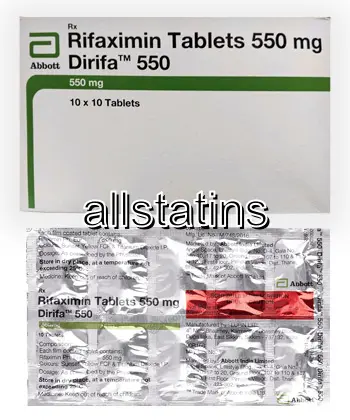| Package | Dosage | Price | Price per Dose | |
|---|---|---|---|---|
| Dosage: 200mg | ||||
| 270 pill | 200mg | AUD569.50 | AUD2.11 | |
| 180 pill | 200mg | AUD416.95 | AUD2.31 | |
| 120 pill | 200mg | AUD305.08 | AUD2.54 | |
| 90 pill | 200mg | AUD241.51 | AUD2.70 | |
| 60 pill | 200mg | AUD175.41 | AUD2.92 | |
| 30 pill | 200mg | AUD91.51 | AUD3.05 | |
| 20 pill | 200mg | AUD63.54 | AUD3.18 | |
| 10 pill | 200mg | AUD35.57 | AUD3.56 | |
| Dosage: 400mg | ||||
| 270 pill | 400mg | AUD1,042.41 | AUD3.86 | |
| 180 pill | 400mg | AUD732.22 | AUD4.07 | |
| 120 pill | 400mg | AUD503.40 | AUD4.20 | |
| 90 pill | 400mg | AUD388.98 | AUD4.32 | |
| 60 pill | 400mg | AUD266.94 | AUD4.45 | |
| 30 pill | 400mg | AUD137.27 | AUD4.58 | |
| 20 pill | 400mg | AUD94.05 | AUD4.70 | |
| 10 pill | 400mg | AUD48.28 | AUD4.83 | |
| Dosage: 550mg | ||||
| 270 pill | 550mg | AUD1,235.64 | AUD4.58 | |
| 180 pill | 550mg | AUD846.64 | AUD4.70 | |
| 120 pill | 550mg | AUD610.18 | AUD5.09 | |
| 90 pill | 550mg | AUD480.51 | AUD5.34 | |
| 60 pill | 550mg | AUD327.96 | AUD5.47 | |
| 30 pill | 550mg | AUD170.32 | AUD5.67 | |
| 20 pill | 550mg | AUD119.47 | AUD5.97 | |
| 10 pill | 550mg | AUD63.54 | AUD6.36 | |

Rifaximin Description
Overview of Rifaximin
Rifaximin is an oral antibiotic commonly used to treat various gastrointestinal conditions. It belongs to the rifamycin class of antibiotics and works by inhibiting bacterial RNA synthesis, which effectively kills or suppresses the growth of certain bacteria. Rifaximin is known for its broad-spectrum activity, making it a versatile option in managing multiple digestive disorders. Its primary use is to treat infections caused by susceptible bacteria, especially those located in the gastrointestinal tract.
Uses and Indications
The medication is primarily prescribed for travelers' diarrhea caused by strains of E. coli. It is also effective in treating hepatic encephalopathy, a complication of liver disease, by reducing the number of ammonia-producing bacteria in the gut. Additionally, Rifaximin is utilized for the management of irritable bowel syndrome with diarrhea (IBS-D), helping patients experience fewer and less severe symptoms. Its targeted action in the gut limits systemic absorption, which reduces the risk of systemic side effects. This makes it particularly suitable for long-term use in certain conditions.
How the Medication Works
Unlike many other antibiotics, Rifaximin acts mainly within the gastrointestinal tract without significant absorption into the bloodstream. This localized action allows it to target intestinal bacteria directly. Its mechanism involves binding to bacterial DNA-dependent RNA polymerase, disrupting bacterial RNA synthesis. As a result, it impairs bacterial replication and survival. This targeted mechanism helps minimize the impact on beneficial bacteria elsewhere in the body, preserving overall gut health while combating pathogenic bacteria.
Advantages and Effectiveness
One key advantage of Rifaximin is its safety profile, especially when compared to other antibiotics. Because of its minimal absorption into the bloodstream, systemic side effects are uncommon. Patients often tolerate it well, even during prolonged courses. Its efficacy has been demonstrated in multiple clinical studies, showing significant improvements in symptoms for conditions like hepatic encephalopathy and IBS-D. Many users report quick relief from symptoms, with some noticing improvements within a few days of starting treatment. Its targeted action reduces the likelihood of antibiotic resistance, although careful use is still recommended.
Potential Side Effects
While Rifaximin is generally safe, some users may experience mild side effects. These can include headache, nausea, or stomach discomfort. Rarely, allergic reactions can occur but are uncommon. Since the medication stays largely within the gut, systemic side effects are infrequent. However, in some cases, antibiotic-associated diarrhea or changes in gut flora might be observed. It is important to discuss any unusual symptoms with a healthcare provider promptly to avoid complications.
Usage and Dosage
The prescribed dosage of Rifaximin varies depending on the condition being treated. For travelers' diarrhea, a typical course involves taking the medication two or three times daily for a few days. For hepatic encephalopathy, it might be prescribed as a longer-term daily treatment. Patients should follow the instructions provided by their healthcare provider carefully. It is essential not to stop the medication prematurely to ensure the infection or condition is fully managed. Maintaining good hydration and dietary habits can complement the effectiveness of the treatment.
Conclusion
Rifaximin is a valuable medication for gastrointestinal infections and disorders. Its targeted mechanism, safety profile, and proven effectiveness make it a popular choice among healthcare providers. As with all antibiotics, responsible use is crucial to prevent resistance and ensure continued efficacy. If you are considering Rifaximin, consulting with a healthcare professional is advisable to determine if it is the appropriate treatment for your condition. Proper usage and adherence to dosage instructions will help achieve the best possible outcomes.
